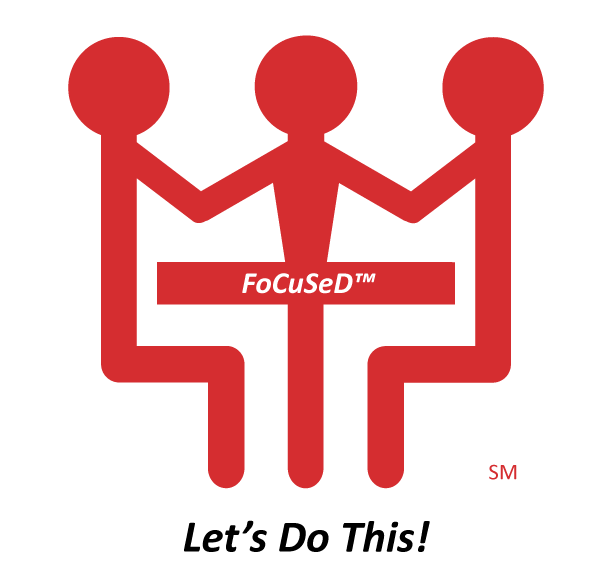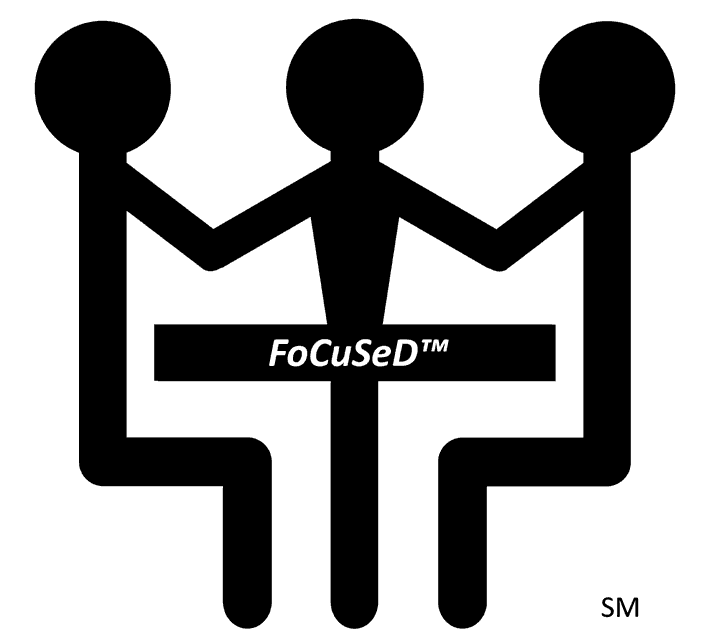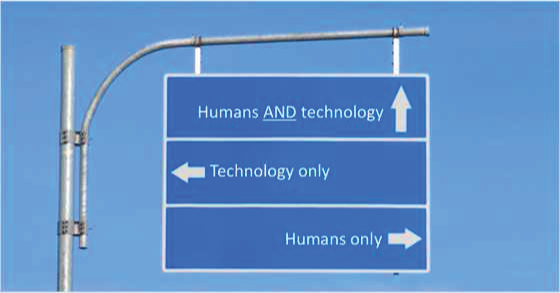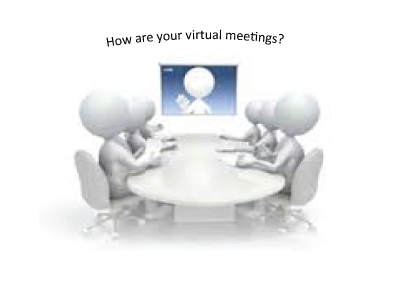July 2016 - The FoCuSeD™ Facilitator eNewsletter

Why FoCuSeD™ Facilitation - Back to Basics | Gary Rush Facilitation
I've been in business for 32+ years. After a while, I may take for granted that everyone knows what FoCuSeD™ facilitation is and "why" it's important. In this article, I define FoCuSeD™ and why you don't want to be un-FoCuSeD.
My structured facilitation technique journey began in 1985 with an article I wrote for Computerworld - "A FAST Way to Define System Requirements" . Since then, I've revolutionized my structured facilitation technique with FoCuSeD™ - a unique concept - Holistic Facilitation. Then, my focus was relative to Information Technology. Today, I've broadened my focus on people skills that contribute to the overall well being of any organization. I've married the concepts of the Process-Consulting style with those of the Relationship-Developing style to create a balance allowing people to use facilitation skills in any situation in business and in life.
FoCuSeD™, my structured facilitation technique, is comprehensive and provides a complete set of people and process skills that you are able to use immediately upon completion.
Why?
Over the years, companies have flattened their organizational structure and moved into more of a consensus-building culture. For this to work (and it does work), companies need people with effective facilitation skills in their ranks. Having people trained in facilitation skills is the most cost-effective way to leverage the knowledge and skills of the people resources in any organization. It is a foundational skill for Knowledge Management.
How do I, Gary Rush, IAF Certified™ Professional Facilitator Train?
People ask me why I conduct a week long class. There are other places to go get train in less time. Why the additional time? I teach my class in 3 segments:
- Foundational Skills
- People and Conflict Skills
- Holistic Facilitation Process Design Skills
Each segment is important and requires hours of effort and practice by the student.
Foundational Skills
This segment develops the foundational facilitation skills to get you started. I cover “how to” prepare for, facilitate, and close a meeting or workshop. I also cover basic people skills, such as presentation skills, communication skills, active listening – the most important skill to facilitate effective communication, questioning, “how to” stay neutral, amongst others to enable you to begin your journey towards an effective group Facilitator and a successful career.
People and Conflict Skills
This segment continues the People Skills portion of your journey by teaching you “how to” deal with difficult people and help them become productive contributors. I will teach you “how to” form a group into a team by understanding diversity, culture, paradigms, team characteristics, team evolution, etc. I will also provide you with numerous people tools to help enhance the functioning of the group, improve creativity, and stimulate new ways of thinking, such as brainstorming, affinity diagramming, team-building, creativity breaks, amongst others.
Holistic Facilitation Process Design Skills
This segment continues the Process Skills portion of your journey by teaching you “how to” design effective workshop and meeting processes that seamlessly incorporate the people tools to enhance team performance. I also provide you with a number of Problem-Solving agendas to get you started along with a number of process tools, such as prioritizing, responsibility matrices, decision-making amongst others.
Materials
Each student receives a PDF version of the FoCuSeD™ Facilitator Guide. It covers everything a facilitator needs to know to facilitate effective workshops.
So...
All of this is important and requires hours of effort and practice. Payback comes with the first facilitated workshop or meeting the student leads.
What makes FoCuSeD™ facilitation training different? It:
- Covers all of business.
- Teaches you the understanding of the two parallel developments occurring; people and process concepts that must be holistically planned to achieve useful solutions.
- Makes you practice - a lot, so that you can use the skills learned immediately upon completion.
- Gives you a comprehensive reference manual that shares what I've learned over 30+ years.
- Covers the IAF Core Facilitator Competencies - enabling those of you who wish to pursue your IAF Certified™ Professional Facilitator (CPF) designation.
"The major difference that I see is philosophy. I believe that people feel better when they learn - they gain confidence and self worth. I challenge students - people do great work when given the challenge and the opportunity."
Who to Train?
I tell organizations that facilitation skills' training is highly effective in developing capable servant leaders. We've been in economic turmoil over the past years. Organizations need to do more with less. Providing organizations with effective group facilitation skills is the most cost-effective way to leverage their people resources.
Why should YOU be trained?
Group Facilitation skills is THE skill set needed in the 21st Century. Business trends demand facilitation skills to be successful. This means that you, the trained Facilitator, will become more of a required and desirable resource for any organization. You owe it to yourself to develop a set of facilitation skills that prepares you for any future change - facilitation skills are transferable from one role or business to another and are invaluable both in business and in life.
Summary
FoCuSeD™ Facilitation enables communication to create useful solutions - that is what FoCuSeD™ is about. 

![]()



